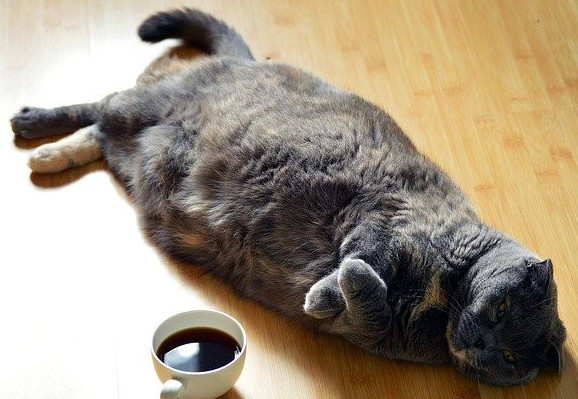Did that grab your attention? I am not selling a magic vitamin supplement or special food. However, my “secret” is not really a secret – I wrote about it in the very first article published for this column.
Here is how to extend the life of your pets and keep them happy and healthy as well as saving money. Here is how to make your dog or cat live longer. Actually, here is how to make you yourself live longer or whatever kind of animal you have in mind, from aardvarks to zebras.
What Is This Magic Secret?
KEEP YOUR PETS AT THEIR IDEAL WEIGHT.
Why Write About This Again?
I am returning to this crucially important topic, a true epidemic, due to the devastating impact it has on our four-legged friends.
I have been preaching this message for over 25 years and I am a bit frustrated! Sometimes, somebody hears me and really takes my message to heart. Usually people mean well, but often nothing changes, and Fluffy continues to gain weight.
I have a list of things I want to write about for this blog. They are all vital for your knowledge as a pet guardian. The list is so long, I don’t think I’m ever going to get to the end of it. So why circle around to a topic I’ve already covered? Well, because it is number one on the list. Most pet owners fail at keeping their pet at ideal weight. It affects not only how long your pet will live but also how well they will live; their quality of life.
Important Points
Studies have shown that your pet will live a longer happier life if they are kept at their ideal weight. You will spend less money on pet food as well as at the veterinarian. You can literally add years to your pet’s life if you don’t allow them to become overweight. Wouldn’t you do anything to have years more time together?
- Ideal body condition is achieved through a combination of diet and exercise. Increase exercise and decrease food intake as need to maintain correct weight.
- It is easier to have an impact on weight through reducing calories (food and treats) than through increasing exercise. Exercise is important though!!
- The way to show affection to your pet is not through feeding. Treat-training is fine, but food should not be the primary method of showing you care.
- Like people, it is normal and healthy for pets to go through cycles of getting hungry between meals.
- It is almost never OK to “free choice” feed your pet. Free choice means food is always accessible. Food isn’t always available in the wild, so this is completely unnatural and will almost always result in obesity as well as other health problems.
- Dogs can eat a combination of high quality dry and/or canned dog food. Careful with the ingredients though.
- Cats are obligate carnivores designed to eat high protein, low carbohydrate, high moisture food. Dry food offers just the opposite. Dry food was created as a convenience for people, not for cats.
- Chubby is not “cute”. It does not mean your pet is “happy”.
- Don’t feel guilty about feeding your pet appropriately. Remember it’s the best thing you can be doing for them, out of care and love.
It’s All About Body Condition
Any pet guardian needs to learn how to properly evaluate the body condition of their pet. People are experts at evaluating body condition of humans, but we are generally quite poor at evaluating the body condition of other animals.
Your veterinarian should be advising you of your pet’s body condition during each annual exam, at a minimum. This is critical. If you are not getting this information, then ask for it. Body condition evaluation differs between species and sometimes within a species. There are multiple free body condition scoring charts on the internet that are great general guides but do not replace the interaction between you and your veterinarian. That is where you discuss what is specific to your pet.
Of course your veterinarian does not see your pet every day. You are in charge of keeping tabs on body condition. You need to study BCS (body condition score). Again, my previous article includes that. Make sure to check the BCS charts.
Make A Difference. Make Your Pets Live Better. And Longer!
Make a difference in the lives of your pets. Obesity is the number one problem small animal veterinarians face. We are here to advise and guide you, but the problem and its solution are in your hands.
You are responsible for your pet.
